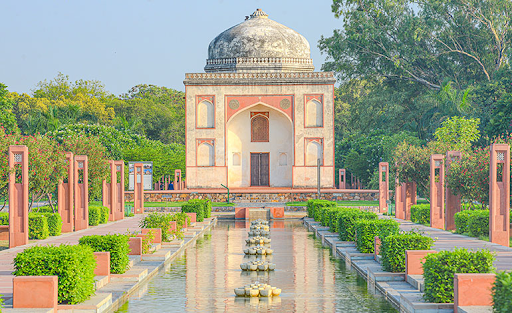Introduction
Located in the heart of Delhi is an expansive forested area that offers visitors a calm respite from the bustling city life around it. Known as Sunder Nursery, it was once the royal gardens of the Mughals and is today a heritage park serving as the city's green lungs.
History and Designations
Established in the late 16th century, the gardens used to supply fruits, vegetables and flowers to the Mughal courts. Post-Independence, it started deteriorating until concerned citizens formed a trust in 2007 to restore it. Today it is maintained by the Aga Khan Trust for Culture and has been designated an oasis, a biosphere reserve and a historical garden.
Flora and Walkways
The carefully cultivated nursery houses over 2000 trees of over 130 species including indigenous along with exotic varieties. Visitors can identify trees through informative signs. The area contains 3.2km of unpaved trails connecting ponds, views and heritage structures. Birdwatching and spotting wildlife like mongooses is popular. sunder nursery ticket cost Rs. 20 for Indians and Rs. 100 for foreign tourists. The garden remains open from 10am to 6pm throughout the week except Monday. Guided tours with experienced naturalists can also be booked online or at the ticket counter located near the main gate.
Architectural Structures
Various structures dating back centuries dot the landscape like the Baradari or pavilion at the center of 12 reservoirs. The 18th-century Qudsia Bagh and a geological well add historical charm. Off the walking paths lie several heritage monuments in disrepair awaiting sensitive restoration.
Events and Programmes
To promote environmental awareness, weekly activities are held attracting nearby residents. These include guided tours, plantation drives, concerts and workshops on biodiversity. International Days are commemorated through cultural performances stressing their importance.
Conclusion
A tranquil retreat amidst Delhi's pollution and commotion, Sunder Nursery plays a vital role as an ecological park. Ongoing conservation efforts ensure this historic garden remains protected for future generations to appreciate its aesthetics and bio-rich legacy as the heart of a once-thriving nursery.
Also, Read: A Guide to the National Rail Museum Delhi: Online Ticket Booking, Price and Timings























